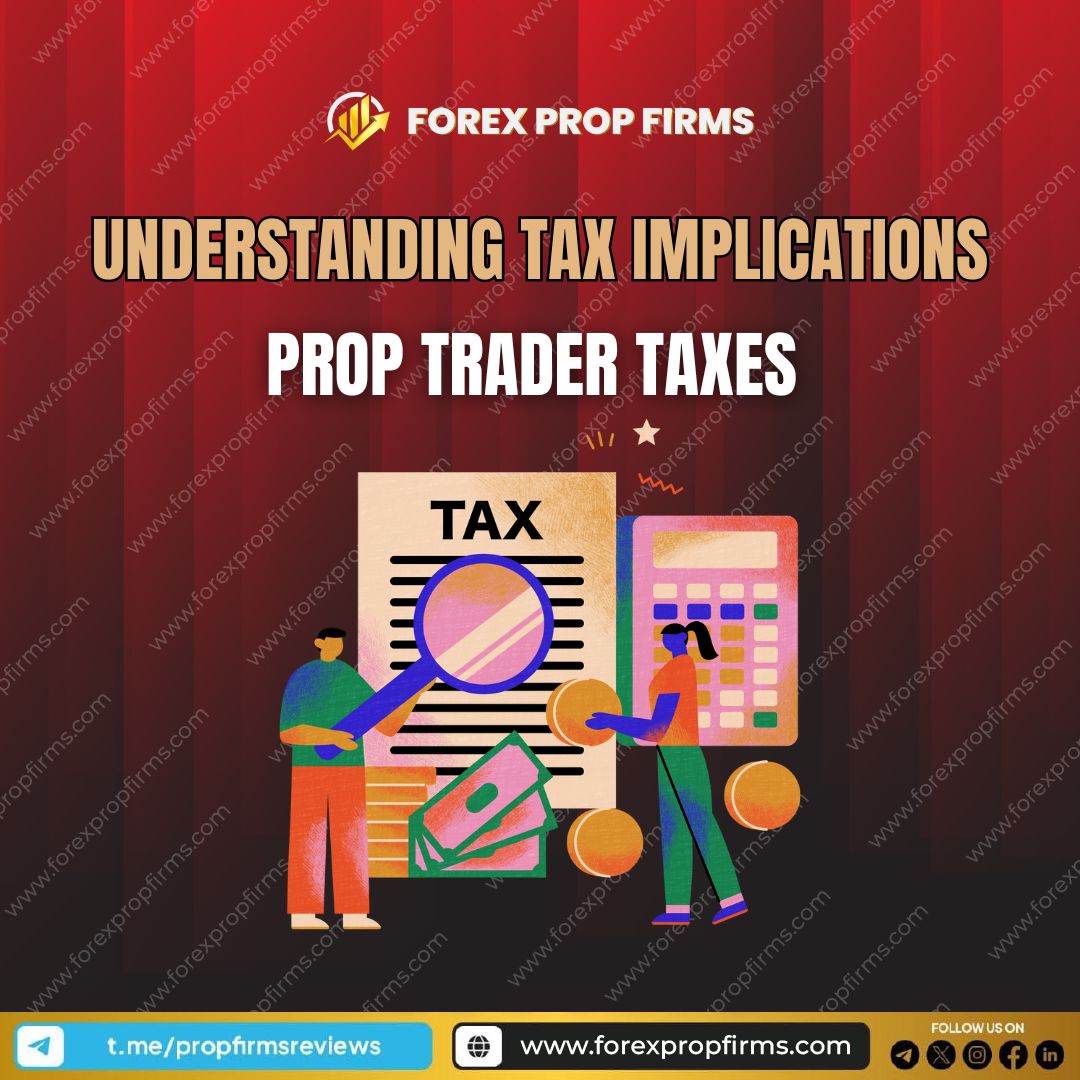
Prop Trader Taxes Understanding Tax Implications for Proprietary Traders
Navigating the tax landscape can be challenging for proprietary traders. Understanding the tax implications of your trading activities is essential to maximizing your after-tax returns and staying compliant with regulations. This guide covers key tax considerations for prop traders, including tax classifications, deductible expenses, and tax optimization strategies.
Tax Classification for Traders
One of the first steps in understanding prop trader taxes is determining your tax classification. The IRS distinguishes between investors, traders, and dealers, and each classification has different tax implications:
- Investor: Typically reports income as capital gains, with limited deductions.
- Trader: May qualify for trader tax status (TTS), allowing for more favorable tax treatment and deductions.
- Dealer: Buys and sells securities as part of a business and reports income as ordinary income.
For proprietary traders, obtaining TTS can provide significant tax benefits, including the ability to deduct trading-related expenses as business expenses.
Deductible Expenses for Traders
Understanding what expenses you can deduct is a crucial part of managing prop trader taxes. Common deductible expenses for traders include:
- Home Office Deduction: If you trade from home, you may be eligible to deduct a portion of your home expenses, such as rent, utilities, and internet, as a home office deduction.
- Equipment and Software Deductions: The cost of trading-related equipment, such as computers and monitors, as well as trading software and subscriptions, can be deducted as business expenses.
- Education and Training: Fees for trading courses, seminars, and other educational materials related to trading may also be deductible.
Keeping detailed records of these expenses is essential for maximizing your deductions and staying compliant with tax regulations.
Capital Gains vs. Ordinary Income
One of the key tax considerations for prop traders is the distinction between capital gains and ordinary income. Capital gains are profits from the sale of assets held for more than a year and are typically taxed at a lower rate than ordinary income. Ordinary income, on the other hand, includes profits from assets held for less than a year and wages or salary from trading activities.
For prop traders, it’s important to understand how different types of income are taxed and to plan your trades accordingly to minimize your tax liability.
Tax-Loss Harvesting
Tax-loss harvesting is a tax strategy that involves selling losing investments to offset gains from profitable trades. This can reduce your overall tax liability by lowering your taxable income. However, be aware of the wash sale rule, which disallows a loss deduction if you repurchase the same or substantially identical security within 30 days before or after the sale.
Tax Planning Strategies for Traders
Effective tax planning is essential for optimizing your tax situation as a prop trader. Consider the following strategies:
- Maximize Retirement Contributions: Contributing to tax-deferred retirement accounts, such as an IRA or 401(k), can reduce your taxable income and allow your investments to grow tax-free until withdrawal.
- Year-End Tax Planning: Review your trading activity at the end of the year to identify opportunities for tax-loss harvesting, deferring income, or accelerating deductions.
- Entity Structuring: Some traders may benefit from forming a business entity, such as an LLC or S-Corp, to take advantage of additional tax deductions and benefits.
The Role of Tax Professionals
Navigating prop trader taxes can be complex, and working with a tax professional who specializes in trading can help you avoid costly mistakes. A tax professional can assist with:
- Choosing the Right Tax Classification: Ensuring you are classified correctly to take advantage of all available tax benefits.
- Filing Accurate Returns: Avoiding errors that could trigger audits or penalties.
- Tax Planning and Optimization: Developing a tax strategy that maximizes your after-tax returns.
Staying Compliant with Tax Regulations
Compliance is a critical aspect of managing prop trader taxes. Ensure you stay compliant with tax regulations by:
- Maintaining Accurate Records: Keep detailed records of all trading activity, expenses, and income.
- Understanding Tax Deadlines: Be aware of tax deadlines for filing returns, paying estimated taxes, and reporting trading income.
- Responding to Tax Notices: If you receive a tax notice or audit request, respond promptly and work with a tax professional to resolve any issues.
Conclusion: Maximizing After-Tax Returns
Understanding the tax implications of your trading activities is crucial for maximizing your after-tax returns as a proprietary trader. By being aware of your tax classification, taking advantage of deductions, and implementing tax optimization strategies, you can reduce your tax burden and increase your overall profitability. Consider working with a tax professional to ensure you are making the most of your tax situation and staying compliant with all relevant regulations.
Let’s Understand Prop Firms
Looking for the latest Prop Firms updates? 😎
Follow our official social channels and never miss a bit!
🌐 facebook.com/propfirmsreviews
🌐 instagram.com/propfirms.reviews











